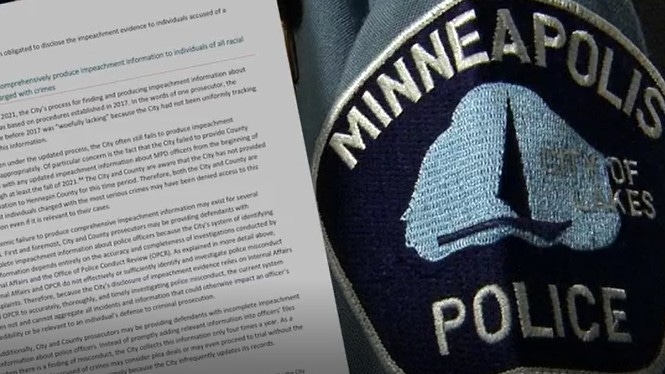MDHR letter to Frey outlines steps for September consent decree submission

KSTP
The Minnesota Department of Human Rights (MDHR) has outlined next steps for the city of Minneapolis in order for a consent decree to be submitted to the court system for approval in September.
Wednesday, MDHR Commissioner Rebecca Lucero sent a letter identifying those steps to Minneapolis Mayor Jacob Frey. The letter follows findings from a nearly two-year MDHR investigation into the Minneapolis Police Department (MPD), which revealed “probable cause” that the city and MPD have a pattern or practice of race discrimination.
According to the letter obtained by 5 EYEWITNESS NEWS, Lucero stated she wants a consent decree drafted and sent to the court system for approval by Sept. 1.
The letter provides a specific outline of the process to reach this date, including participation in day-long sessions to negotiate the terms of the agreement.
When MDHR released its findings last week, the agency reported wanting to gather community input on what goes into the consent decree.
RELATED: State asks Minneapolis leaders for consent decree to reform police department
That process is built into the timeline outlined in the letter, however, how that feedback will be gathered has not yet been specified.
The letter also references the pending U.S. Department of Justice investigation into the city’s police department. On this point, Lucero states that although it’s unclear when that investigation will be completed, “it is imperative to immediately address the state law violations” MDHR has identified in its report.
In a responding letter, City Attorney Jim Rowader stated Minneapolis “is fully committed to working with MDHR to address the issues in the report.”
5 EYEWITNESS NEWS reached out to the mayor’s office for comment Wednesday. On Thursday, the mayor addressed the topic during a separate news conference.
When asked what he would like to see regarding a consent decree, Frey said, “A consent decree is not only something I’m open to, it’s something I’m supportive of. That being said, we want to make sure that there is clarity of the goals that we are working for, that there’s consistency in the measures that could ultimately be adopted, and that we don’t have dueling consent decrees that are providing multiple monitors, multiple administrators, and lacking a clear criteria of what we need to hit. So again let’s make sure that we have accountability in this document. Let’s make sure that the policies that we’re pushing for are both stringent and we can achieve them and, at the same time, we want to make sure that we’re not moving forward in a way that would subject us to many, many consent decrees and many, many administrators or monitors.”